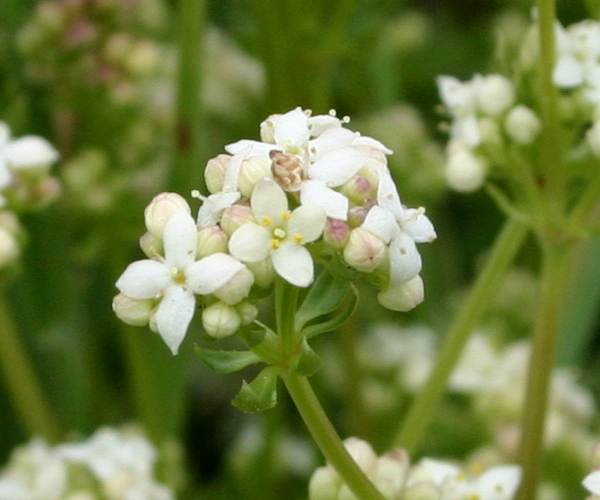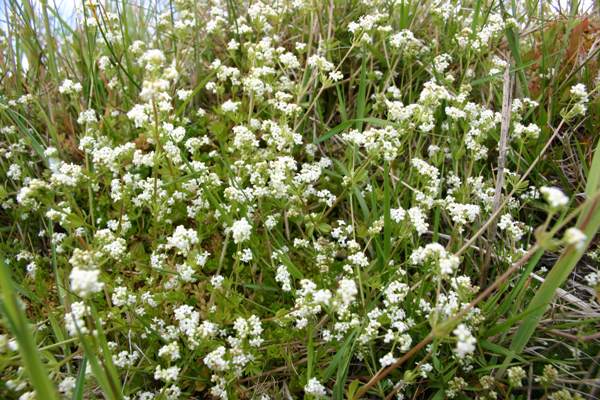Galium mollugo - Hedge Bedstraw
Phylum: Anthophyta - Class: Equisetopsida - Order: Gentianales - Family: Rubiaceae

Hedge Bedstraw is more common on alkaline soils, but it does also occur in areas whene acid soild dominate.
Description
A scrambling perennial of well drained grassy banks, Hedge Bedstraw blooms from June until September. The square stems are hairless and when climbing over other plants they can reach a height of well over a metre. The leaves, in whorls of 6 to 8, are elliptical with a terminal point. Flowers up to 5mm across have four white petals, each with a pointed tip.
Habitat
Favouring neutral to alkaline habitats, Galium mollugo is seen most often on dry grassy hedge banks and scrubby grassland.
Distribution
Hedge Bedstraw is widespread throughout the UK except in the far north and in Ireland, where it is an uncommon to rare find. This species is found in most parts of mainland Europe and has become naturalised in many other temperate countries.

Blooming times
In Britain and Ireland, Hedge Bedstraw can usually be seen in flower between June and September. The plants shown here were photographed in mid June near Teifi Pools, the source of the River Teifi, in West Wales.
Similar Species
Cleavers (Galium aparine), commonly referred to also as goosegrass, is another common member of the bedstraw family; its fruits and stems are covered in curved hairs that stick to animal fur (and human clothing!) by which means the seeds are transported to new locations.
Sue Parker's latest ebook is a revised and enlarged edition of Wild Orchids in The Burren. Full details here...
Buy it for just £5.95 on Amazon...
Please Help Us: If you have found this information interesting and useful, please consider helping to keep First Nature online by making a small donation towards the web hosting and internet costs.
Any donations over and above the essential running costs will help support the conservation work of Plantlife, the Rivers Trust and charitable botanic gardens - as do author royalties and publisher proceeds from books by Pat and Sue.

